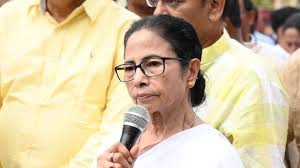Bihar electoral roll revision sparks concerns, but is the real prize West Bengal?

A quiet storm is building in Indian politics. The electoral roll revision in Bihar, meant as an administrative update, has stirred controversy. Critics say this move could alter democratic participation—not just in Bihar, but in West Bengal as well.
What seems like a state-level process might be the beginning of a broader political strategy.
What’s Happening in Bihar?
The Election Commission launched a Special Summary Revision (SSR) in Bihar to update the voter list. Officials asked citizens to submit documents such as birth certificates or proof of parental origin. The goal, according to the EC, is to clean up the rolls and ensure accuracy.
However, opposition leaders strongly object. They argue that the process unfairly targets people from marginalized communities—especially Muslims, Dalits, and migrant workers. Many of these citizens struggle to produce formal documentation. As a result, they could lose their right to vote.
Leaders like Rahul Gandhi and Tejashwi Yadav have called this move an attack on democracy. Massive protests erupted across Bihar. A petition challenging the process will be heard in the Supreme Court on July 10.
Legal Disputes and Political Implications
The opposition claims the revision is poorly timed. Bihar’s Assembly elections are less than a year away. Critics say this revision could remove thousands—or even millions—of valid voters just before the polls.
A PIL filed by BJP leader Ashwini Upadhyay calls for similar revisions in other states. He argues that border regions face illegal immigration, and voter rolls need cleansing. This raises concerns that Bihar could be a trial run for a nationwide strategy.
If the Supreme Court upholds the legality of this process, it may set a precedent. That decision could open the door for similar revisions in other politically sensitive states.
Why West Bengal Feels Targeted
Chief Minister Mamata Banerjee has voiced strong opposition. She described the Bihar revision as a “backdoor NRC.” Her concern is clear: if this model works in Bihar, it could spread to West Bengal.
West Bengal votes in 2026, and the BJP views it as a key battleground. The party has often accused the TMC of allowing undocumented immigrants to vote. A revision of voter rolls could help BJP reshape the voter base—especially in districts with high Muslim populations.
TMC MP Mahua Moitra and activist groups have filed pleas in the Supreme Court. They want to prevent Bihar’s model from becoming the norm elsewhere.
Is Bihar Just a Trial Run?
Political analysts believe Bihar may be the first step in a broader strategy. Several reasons support this view:
- Location: Bihar and Bengal both share international borders. This makes them focal points in immigration debates.
- Timing: Bihar votes in 2025. Bengal follows in 2026. Revising voter rolls now could shape results in both states.
- Legal Support: A court decision in favor of the revision could encourage similar moves in opposition-ruled states.
The BJP defends the revision. They say it’s necessary to protect the sanctity of elections. But critics call it a move to manipulate voter demographics.
Ground Reports from Bihar
People in rural Bihar are already facing problems. Many struggle to produce the required documents. Migrant families are especially at risk. Without proper proof, their names could vanish from the list.
Rights groups are gathering reports of voters being excluded. Several families claim that their names were dropped, even though they’ve voted for decades.
In West Bengal, civil society groups have begun awareness campaigns. They aim to protect voter rights before any similar process begins in the state.
The Bigger Picture
At first glance, the voter list update looks like routine housekeeping. But the political backdrop makes it far more complex. With high-stakes elections approaching, any change to voter rolls could shift power dynamics.
The opposition sees the Bihar revision as a tool for voter suppression. The ruling party presents it as a cleanup operation. But public sentiment, especially in border regions, reflects growing mistrust.
Conclusion
The Bihar electoral roll revision may be about more than just voter accuracy. It could be part of a wider political play—aimed at redrawing the electoral map ahead of crucial state elections.
If Bihar is the beginning, West Bengal might be the next chapter.
The question is no longer just about documentation—it’s about democracy. current battleground, the real political prize may indeed lie further east—in the culturally and electorally rich state of West Bengal.






